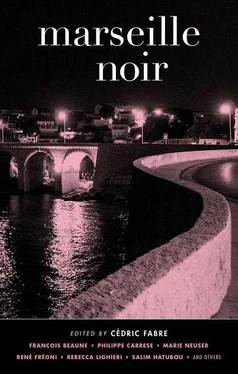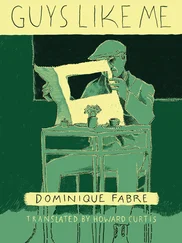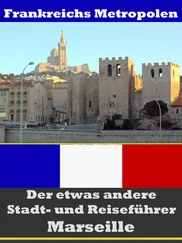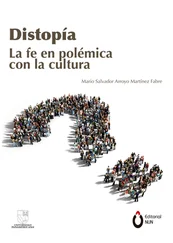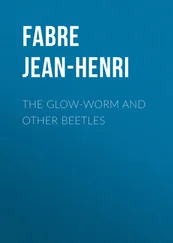Cédric Fabre - Marseille Noir
Здесь есть возможность читать онлайн «Cédric Fabre - Marseille Noir» весь текст электронной книги совершенно бесплатно (целиком полную версию без сокращений). В некоторых случаях можно слушать аудио, скачать через торрент в формате fb2 и присутствует краткое содержание. Год выпуска: 2015, Издательство: akashic books, Жанр: Крутой детектив, на английском языке. Описание произведения, (предисловие) а так же отзывы посетителей доступны на портале библиотеки ЛибКат.
- Название:Marseille Noir
- Автор:
- Издательство:akashic books
- Жанр:
- Год:2015
- ISBN:нет данных
- Рейтинг книги:5 / 5. Голосов: 1
-
Избранное:Добавить в избранное
- Отзывы:
-
Ваша оценка:
- 100
- 1
- 2
- 3
- 4
- 5
Marseille Noir: краткое содержание, описание и аннотация
Предлагаем к чтению аннотацию, описание, краткое содержание или предисловие (зависит от того, что написал сам автор книги «Marseille Noir»). Если вы не нашли необходимую информацию о книге — напишите в комментариях, мы постараемся отыскать её.
Marseille Noir — читать онлайн бесплатно полную книгу (весь текст) целиком
Ниже представлен текст книги, разбитый по страницам. Система сохранения места последней прочитанной страницы, позволяет с удобством читать онлайн бесплатно книгу «Marseille Noir», без необходимости каждый раз заново искать на чём Вы остановились. Поставьте закладку, и сможете в любой момент перейти на страницу, на которой закончили чтение.
Интервал:
Закладка:
“I really need a cup of coffee, Aurore. Please.”
She sighed, then went down the alley and disappeared around the corner of a container.
Small groups had gathered, people who were talking in low voices with clenched jaws. They looked worried.
Aurore soon reappeared with a tray. Steaming coffee and buttered slices of baguette. She walked into the container and came out with a big straw mat she put down in a spot shielded from the wind. She placed the tray on it and sat down without a word.
“You look funny. So do those people. What’s going on?”
“All hell broke loose last night after we left the silo. That’s what the mama who gave me the coffee just told me. Armed men came in and there were shots. Some people were wounded. We don’t know what they wanted. Downtown, there’ve been demonstrations since dawn and they’ve turned into street fights. They destroyed the animal sculptures at the Vieux-Port and looted the cardboard buildings of the artists — you know, what they called the Ephemeral City.” Cell phones were useless; they hadn’t been working for the last few days.
She lowered her head and blew on her coffee, then looked into my eyes. “And something happened to Phocéa.”
“How do you know?”
“This morning at dawn, there was the usual crowd on the waterfront. They were waiting for the screening, the images of the day. But there weren’t any. It’s the first time, in a whole month.”
She threw her paper cup in front of her, got up, and held out her hand to help me up too. “You’ll find her in J1; she has a hideout at the back of the building. Go there fast, do what you have to do, then meet me at La Joliette and we’ll get the hell out of here. We’ll leave this fucking port, our purgatory, our aborted dreams.”
The seagulls were sniggering over our heads. I hated those birds; their droppings polluted the drinking water. My mother always told me that the real catastrophe would come the day they closed the huge open-air garbage dumps all around Marseille that the gulls used as a food cupboard. Then they’ll move inland, loot the planted fields, and destroy the hothouses. Like a plague of Egypt.
I stared at Aurore. Realizing that she was actually quite beautiful. She motioned to me to get moving.
I ran to the J1. When I reached the cathedral, I heard noises that seemed to be coming from the Vieux-Port; following the gaze of the passersby standing there, frozen on the spot, I saw black smoke rising over the buildings. I heard a mailman who’d just stepped off his scooter say to the people surrounding him: “They stormed the city halls in all the sectors. ”
I stepped up my pace. Once in front of the building, I climbed over the fence and went up the metal stairs. I almost slipped on the wet footbridge. The sea was lashing the dikes, but I was no longer afraid of that mass of water spilling all over, with its dips, its waves, its wounds. The glass door was closed. Behind it, I saw someone point to a guy who then lifted the metal bar barricading the entrance. Someone pulled me inside. I rushed toward the big hall and slowed down when I discovered dozens of photos pinned up on panels that created a guided path. I knew I would find her not far from there: all I had to do was follow the exhibit, go around the panels covered with vacation snapshots and family portraits donated by anonymous people in Marseille — children with shrimping nets on a rock, a woman in a black dress fishing from a small boat, a bunch of brothers and sisters all wearing ribboned straw hats standing in front of a Citroën Ami 8.
She was lying there between the last panel and the window that looked over the Arenc basin, stretched out on a mattress on the floor. A woman with a serious face and a tense mouth was kneeling over her, doing something; bloody cloths were scattered around Phocéa. I squatted down, noticed a wound on her chest, and turned my eyes away immediately.
“They got me. They took their tape back. Your employers must be furious. I don’t work for anyone, I hope you understood that, right? I only show true images, pictures we need to make sense. That’s all.” Her face tightened. “I’m ready now. I’m not afraid.”
I thought of Louis Brauquier’s line: Marseille, tragic and always consenting. “Did you call an ambulance?”
“They say they’re coming but they’re overwhelmed, it’s a real mess downtown.” Phocéa closed her eyes. “I won’t make it, anyway. Do you hear the shouts outside, you see the smoke? It’s started. chaos. We deserved it. We, the artists, abandoned our city. Culture capitulated. The video was posted on the Internet at five this morning. An hour later, it had been viewed a hundred thousand times and men started going out into the streets with flags in the city’s colors, wearing Olympique de Marseille T-shirts, sometimes with their wives and children. First they forced open the doors of the city hall of the third sector and then all the others. People say they smashed the emblem of the Republic: the busts of Marianne were replaced by replicas of the 1993 European Cup. They built barricades in the streets, they’re surrounding the police stations; some of them have weapons.”
“The video? You mean the clip with Zidane and Cantona? How can that be responsible for what’s happening in the streets?”
“They’re calling on fans to drive out the politicians and occupy the city halls of all the sectors. They say the citizens have become cowards. They’re asking the fans what they’re waiting for to take everything over by force, since in reality they already have: they’re the ones who made Marseille a city that wins, in the eyes of the world. They’re telling them to go out into the streets and they’re promising to become the new coaches of the Olympique de Marseille. And lift the city out of its depression. ”
I was stupefied. Local identity was sometimes summed up by the soccer slogan Proud to be Marseillais. The Olympique de Marseille was a whole economic system founded on the revenge of the working classes, in addition to being a commercial enterprise with its suppliers, its customers, and occasional strikes by its fans.
“That’s the only thing people want here. The future of the city was sabotaged by the politicians, but when Marseille stops being a blighted city and the capital of delinquency, if only for the duration of one game, it will be thanks to the Olympique de Marseille. It’s not just an outlet, it’s the collective unconscious of Marseille, its share of light. Only soccer can ward off the failure of a whole city and its inhabitants.”
“And because two soccer stars incite them to do it, they destroy the city?”
“Apparently, you don’t really understand this place.”
I’d screwed up my mission and my employers were going to demand an explanation; I had to split. The image of my mother appeared at the back of my mind. “It doesn’t matter. I’m going to leave. Goodbye, Phocéa.”
I kissed her on the forehead. She winked back at me and then had a coughing fit that brought up blood. I took the opportunity to walk away.
On the port, cars were flooding in to board the ferry, creating a mammoth traffic jam. Columns of people were walking in, loaded with luggage. Some of them were running around shouting.
Aurore called out to me: “Are you ready? This ferry’s leaving in an hour.”
“I have to go back to my hotel first.”
I charged ahead and she followed closely behind. At the reception desk, the concierge was busy stuffing clothes and books in a bag on the counter. He stopped, searched his desk, and gave me a piece of paper.
“There were two calls for you. I’m sorry. One came from the director of an old people’s home and he said your mother died this morning. A heart attack. She didn’t suffer. And the other one. said the same thing. But the person who called didn’t tell me who he was.”
Читать дальшеИнтервал:
Закладка:
Похожие книги на «Marseille Noir»
Представляем Вашему вниманию похожие книги на «Marseille Noir» списком для выбора. Мы отобрали схожую по названию и смыслу литературу в надежде предоставить читателям больше вариантов отыскать новые, интересные, ещё непрочитанные произведения.
Обсуждение, отзывы о книге «Marseille Noir» и просто собственные мнения читателей. Оставьте ваши комментарии, напишите, что Вы думаете о произведении, его смысле или главных героях. Укажите что конкретно понравилось, а что нет, и почему Вы так считаете.
